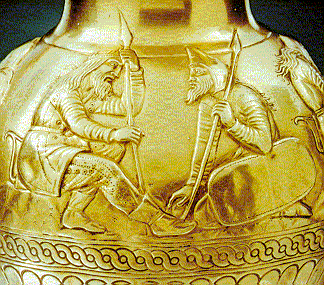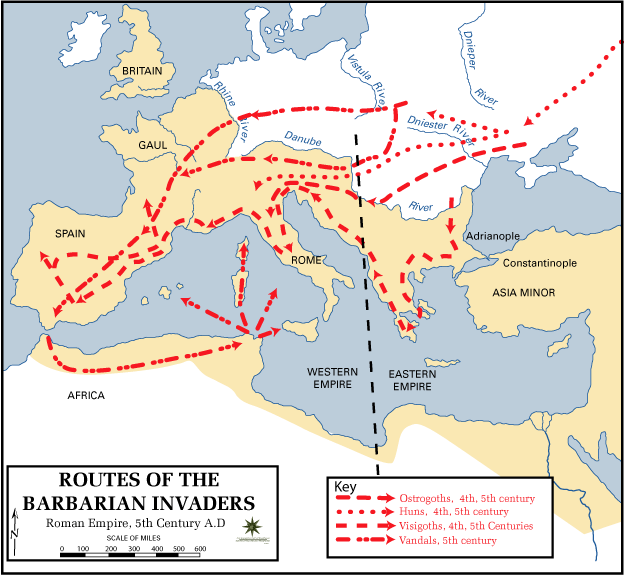Civilization, the Barbarian, and Crimea


To read dispatches from the ongoing geopolitical conflict occasioned by the revolution in Kiev and Russian military intervention in Crimea, one might understandably think that the world was facing what the late Samuel Huntington called a “clash of civilizations”: a quintessentially late Modern form of conflict where traditional nation-state rivalries are sublimated into epochal battles between rival systems of beliefs and values.
Indeed, this impression has been ably stoked by many of the key players. Referring to a planed referendum on Crimean independence, the new Ukrainian Prime Minister Andrei Yatsenyuk recently declared: “No one in the civilized world will recognize the results of a so-called referendum carried out by these so-called authorities.” Here, “civilization” denotes Europe and the West; Russia, the sponsor of the Crimean referendum, is explicitly excluded, consigned to the role of the barbarian, civilization’s long-standing antithesis.
Russian leaders are using much the same language. Vladimir Nikitin, a member of the Russian Duma, framed the Crimean struggle in distinctly Huntingtonian terms, writing “The main battle of World War III is under way in Ukraine…. The aggressor is Western civilization, which includes the U.S. and Europe.”
But the circulation of tropes of civilization and barbarity on the Crimean Peninsula is hardly a novelty of late Modernity. It is instead a highly unoriginal revival of a very old device. The ancient Greek term barbaros (βάρβαρος) was used rather indiscriminately to describe non-Greeks, but was rather emphatically deployed to describe the peoples who occupied the Black Sea coast where Greek colonies encountered very different ways of life. Scythians in particular became a kind of “type site” for working out the idea of the barbarian and hence of civilization. Subsequently, the Romans came to see the people’s of eastern Europe and the Russian steppe as quintessential barbarians pressing against the margins of “Civilization” and forever seeking to blot out its achievements (take your pick from the threatening dotted lines on the map below: Visigoths, Ostrogoths, Vandals, Huns, etc.).
The ancient description of the barbarian carried with it a sense that those outside of Civilizations warm embrace were historical fossils or anthropological “primitives”. Interestingly, we see this too in the current discussion of Crimea. President Barack Obama has argued that the Russian military incursion into Crimea was a “violation of international law” which put Russian President Vladimir Putin “on the wrong side of history.” The right side of history is of course the path that leads to us while the wrong side leads to uncomfortable and undesirable futures.
The leader of Britain’s liberal democrats, Nick Clegg, effectively spliced the geographic and historical dimensions of the civilizational trope when he demanded that Moscow enter into a “civilised dialogue” over Crimea, arguing that the Russian leader had a “KGB mentality rooted in the Cold War”.
What is compelling about the redeployment of old tropes to the Crimean conflict is not simply the coincidental geography of its return, but its remarkable unsuitability. The terms, always imprecise and obscurantist, now seem as tattered and torn as the flags on the barricades of Maidan Square. It simply makes no sense–rhetorical or political–to claim a civilizational mantle when for both sides the interests are largely strategic: a warm water port for one, an expanded European sphere for the other. And quite likely, uses of civilization have ever been thus. The exclusivity of the civilizational club providing nothing in the way of social or cultural content but simply an opportunistic politics. We might hope then that the absurdity of the civilizational rhetoric now swirling around Crimea might not be a harbinger of either a civilizational clash or World War II, but of a moment when the concepts lost their power to draw lines.

